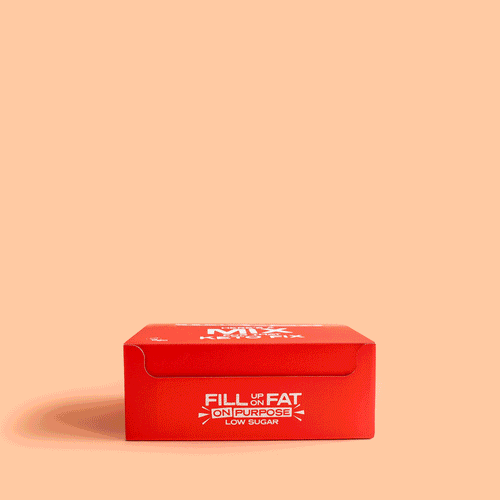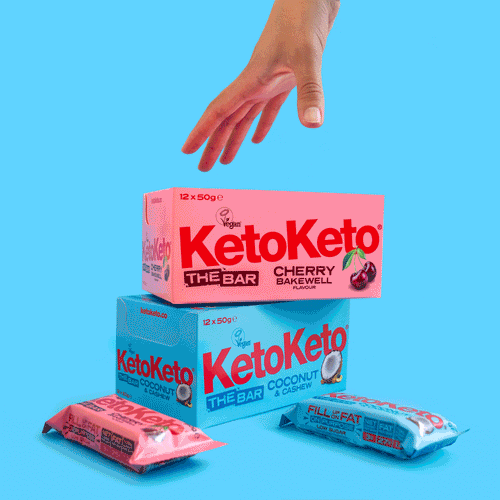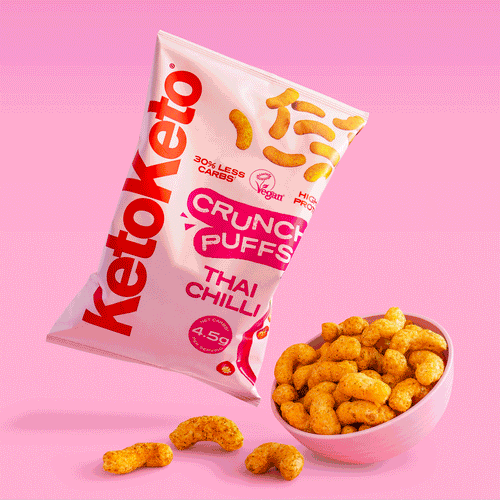Diabetes type II is one of the most common metabolic disorders which manifests as impaired insulin production and insulin resistance.
More than 422 million people have diabetes worldwide.
According to the WHO reports, diabetes has become one of the most dominating non-communicable diseases and a leading cause of kidney failure, heart disease, stroke, and blindness worldwide.
Among various factors, obesity is one of the dominant factors. It is estimated nearly every 3rd person in the UK is obese or overweight and that 1 in every 16 people suffer diabetes in the UK.
The UK has more type II diabetes (85%) than type I diabetes (15%).
However, compared to other metabolic disorders, which are often genetic and non controllable, diabetes is controllable and preventable with dietary modifications.
According to a review article published in Nutrition and Diabetes, the keto diet is the most ‘effective dietary strategy' to reverse diabetes, subsequent complications and prevent pre-diabetics from developing diabetes in future.
What is a keto diet?
A keto diet is consuming more fats while cutting down carbs in the diet. The diet comprises mainly fats (60-70%), moderate protein (15-20%) and least of all carbs (5-10%).

Keto diet for diabetes would be like killing many birds with one stone. A study published in Cureus found that a ketogenic diet:
- Lowers blood sugar levels
- Lowers systolic and diastolic blood pressures
- Causes weight loss
- Boosts HDL levels (good fats)
- Reduces blood cholesterol and triglyceride levels
- Boosts insulin sensitivity
- Reduces the dosage and need for anti-diabetic medications
Additionally, a cohort study published in Lancet revealed that participants with high carb intakes had higher mortality risks than participants following the keto diet.
A deep-dive analysis:
The cells in our body use glucose to get immediate energy. But in energy-deprived conditions, they switch to burning fats as energy rather than carbohydrate.
When a non-diabetic person consumes a carbohydrate-rich diet, it followed by a sudden rise of glucose levels in the blood. Subsequently, the body responds by secreting insulin from the pancreas. The role of insulin is to:
- Provoke uptake of glucose from the blood to the body tissues.
- Curb the fatty acid release from fat tissues (adipose tissue)
- Stop the production of ketones from the liver
- Favours fats and glycogen storage.
Cellular uptake of glucose requires insulin, and impaired insulin production is one of the problems in diabetes, causing high blood sugar levels.
Secondly, because of insulin resistance, insulin cannot suppress the liver production of glucose by burning fats, causing more glucose in the bloodstream. Altogether, it causes persistent high blood sugar levels that are dangerous and also leads to secondary health issues.
Therefore, the keto diet is a clever way of switching from glucose towards consuming fats to reduce the use of insulin and enhance insulin sensitivity by secondary effects (discussed below).

The KetoKeto Mix Box
When we set out to create the perfect Keto Snack, our aim was to develop a bar that was truly low in net carbs, free from sugar and high in good fat! Grab a mix of every flavour
How does the keto diet help manage diabetes?
1. Reduces high blood sugar levels
Ketones suppress the liver glucose output by signalling to the liver that energy is present and therefore, preserving the energy, rather than pouring it into the bloodstream, which lowers blood sugar levels.
It is known that the body releases ketones in a fasting or food-deprived state. Therefore, an increase in ketones boost glucose uptake from the blood by muscles and fat tissues, further lowering sugar levels.
2. Reduces insulin need and improve insulin sensitivity
When the body adapts to take fuel from fats and reduce glucose consumption from carbs, it relies less on the insulin-glucose system for energy. In this way, the little insulin available in diabetic patients becomes sufficient, and with time, cells become more sensitive to the available insulin in the body. The additional improvement in insulin resistance is achieved due to weight loss while on a keto diet.
3. Provides double the energy whilst stabilising sugar levels
The Keto diet provides twice more the energy than carbohydrates due to the high fat intake. Additionally, energy from burning fats does not cause acute blood sugar rises and avoids postprandial (after meal) blood sugar spikes.
4. Clears free fatty acids from the blood
Due to impaired insulin production, the liver keeps secreting free fatty acid into the bloodstream, which firstly causes insulin resistance among muscle groups. Secondly, free fatty acids in the blood increase the 3-fold chances of cardiovascular diseases. However, a study found that a low-carb keto diet helps free fatty acid clearance and lowers blood triglycerides levels by 30%.
Keto diet recommendations for diabetics:
Carbohydrates:
Keeping carbohyrdates to a minimum is key, and it is recommended only between 10g - 50g per day are consumed. If you are factoring them into your keto plan, try to consume nutrient-dense and fibre-rich carbs and avoid processed and refined carbs. For instance, class as nutrient-dense carbs such as fruits, non-starchy vegetables, whole grains, and some legumes.
Proteins:
Take a moderate amount of lean meat (chicken, fish, bacon) or egg as an excellent source of protein.
Fats
Eat unsaturated fats such as nuts and seeds, which are heart-healthy and control cholesterol levels. You can also use saturated fats from butter and coconut oil.
Try to eat healthy snacks in between meals to refuel sinking energy levels. You could try KetoKeto healthy snacks which are tailored to your keto diet needs. The good thing is, KetoKeto Bars have no sugar, but only Erythritol and Xylitol, which are safe and well-tolerated natural sweeteners. These have been shown to rarely affect blood sugar and insulin levels, says WebMD.
Not only this, but all KetoKeto snacks are also 100% vegan and can be a major hit for you if you want to fulfil protein needs in a vegan way.

KetoKeto Low Carb
Crunch Puffs
Missing crisps? We know the feeling. Our new low carb Crunch Puffs only have 78 calories per serving, helping you to snack better and satisfy that craving for some crunch.
Low glycaemic index diet OR a Low carbohydrate diet?
A clinical trial published in the journal Molecular and Cellular Biochemistry analysed low glycaemic and low carb diets. It concluded that the low carbohydrate keto diet was more effective in improving lipid and glycemia management. Similarly, a study published in Nutrition found that more than 95% of participants on Low carb diets had anti-diabetic medication reductions, compared to 60% of participants on a low glycemic diet.
How soon does the keto diet start reversing my diabetes?
You will soon start experiencing anti-diabetic effects as soon as the body adopts the keto diet. A study published in the Journal of Diabetes Research observed anti-diabetic effects (elevated HDL levels, reversed diabetes, reduced blood pressure and weight loss) post 90 days on a keto diet.
Does the keto diet cause diabetic ketoacidosis (DKA)?
Usually, the Keto diet would not cause diabetic ketoacidosis (a condition with dangerous levels of ketones in the blood) unless your body is producing insulin, or you are taking the exogenous insulin. DKA can occur in type 1 diabetes when there is absolutely no production of insulin by the body. However, we do recommend you speak to your doctor or a diabetologist before starting a keto diet.
Is ketosis and ketoacidosis the same?
No. Ketoacidosis occurs when too many ketones build up in a person with no insulin (type I diabetes), leading to acidosis (diabetic ketoacidosis). On the other hand, ketosis occurs when the liver breaks down fats into ketones to get energy between meals and in the fasting state. Ketosis occurs in all of us daily, and it is so minimal that it cannot cause acidosis.
Caution:
- Speak to your GP or diabetologist before starting a keto diet
- You must not follow the keto diet for a prolonged time
- You must closely monitor blood sugar levels
- You may develop hypoglycaemia whilst your body adapts keto diet

References
- www.diabetes.org.uk
- www.who.ints
- www.hindawi.com
- pubmed.ncbi.nlm.nih.gov/28864332/
- care.diabetesjournals.org
- www.diabetes.org.uk
- www.hsph.harvard.edu
- https://www.webmd.com/diabetes/keto-diet-for-diabetes
- WebMD - Keto diet for diabetes
- https://pubmed.ncbi.nlm.nih.gov/17447017/
- WebMD - Keto diet for diabetes (2)
- .sciencedirect.com
- mrc.ukri.org.






